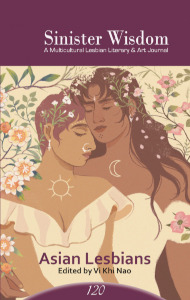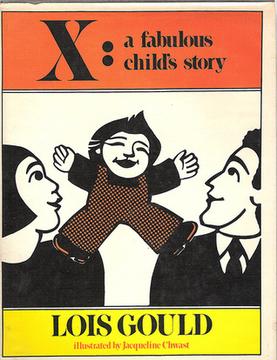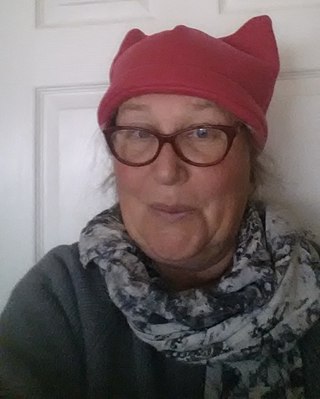
Children's literature or juvenile literature includes stories, books, magazines, and poems that are created for children. Modern children's literature is classified in two different ways: genre or the intended age of the reader, from picture books for the very young to young adult fiction.

Gloria Jean Watkins, better known by her pen name bell hooks, was an American author, theorist, educator, and social critic who was a Distinguished Professor in Residence at Berea College. She is best known for her writings on race, feminism, and class. The focus of hooks' writing was to explore the intersectionality of race, capitalism, and gender, and what she described as their ability to produce and perpetuate systems of oppression and class domination. She published around 40 books, including works that ranged from essays, poetry, and children's books. She published numerous scholarly articles, appeared in documentary films, and participated in public lectures. Her work addressed love, race, class, gender, art, history, sexuality, mass media, and feminism.

Lesbian feminism is a cultural movement and critical perspective that encourages women to focus their efforts, attentions, relationships, and activities towards their fellow women rather than men, and often advocates lesbianism as the logical result of feminism. Lesbian feminism was most influential in the 1970s and early 1980s, primarily in North America and Western Europe, but began in the late 1960s and arose out of dissatisfaction with the New Left, the Campaign for Homosexual Equality, sexism within the gay liberation movement, and homophobia within popular women's movements at the time. Many of the supporters of Lesbianism were actually women involved in gay liberation who were tired of the sexism and centering of gay men within the community and lesbian women in the mainstream women's movement who were tired of the homophobia involved in it.

Heather Has Two Mommies is a children's book written by Lesléa Newman with illustrations by Diana Souza. First published in 1989, this story was one of the first pieces of LGBTQ+ children's literature to garner broad attention. While the book is often noted as the first lesbian picture book, Jane Severance's book, When Megan Went Away, also has lesbian characters and debuted ten years before Newman's.
Black feminism, also known as Afro-feminism chiefly outside the United States, is a branch of feminism that focuses on the African-American woman's experiences and recognizes the intersectionality of racism and sexism. Black feminism also acknowledges the additional marginalization faced by black women due to their social identity.
(Barbara) Anne Cameron was a Canadian novelist, poet, screenwriter, short story and children's book writer.

Sinister Wisdom is an American lesbian literary, theory, and art journal published quarterly in Berkeley, California. Started in 1976 by Catherine Nicholson and Harriet Ellenberger (Desmoines) in Charlotte, North Carolina, it is the longest established lesbian journal, with 128 issues as of 2023. Each journal covers topics pertaining to the lesbian experience including creative writing, poetry, literary criticism and feminist theory. Sinister Wisdom accepts submissions from novice to accredited writers and has featured the works of writers and artists such as Audre Lorde and Adrienne Rich. The journal has pioneered female publishing, working with female operated publishing companies such as Whole Women Press and Iowa City Women's Press. Sapphic Classics, a partnership between Sinister Wisdom and A Midsummer Night's Press, reprints classic lesbian works for contemporary audiences.

Conditions was a lesbian feminist literary magazine that came out biannually from 1976 to 1980 and annually from 1980 until 1990, and included poetry, prose, essays, book reviews, and interviews. It was founded in Brooklyn, New York, by Elly Bulkin, Jan Clausen, Irena Klepfisz and Rima Shore.
The Combahee River Collective (CRC) ( kəm-BEE) was a Black feminist lesbian socialist organization active in Boston, Massachusetts from 1974 to 1980. The Collective argued that both the white feminist movement and the Civil Rights Movement were not addressing their particular needs as Black women and more specifically as Black lesbians. Racism was present in the mainstream feminist movement, while Delaney and Manditch-Prottas argue that much of the Civil Rights Movement had a sexist and homophobic reputation.

Melanie Kaye/Kantrowitz was an American essayist, poet, academic, and political activist against racism and for economic and social justice.
Feminist children's literature is the writing of children's literature through a feminist lens. Children's literature and women's literature have many similarities. Both often deal with being seen as weak and placed towards the bottom of a hierarchy. In this way feminist ideas are regularly found in the structure of children's literature. Feminist criticism of children's literature is therefore expected, since it is a type of feminist literature. Feminist children's literature has played a critical role for the feminist movement, especially in the past half century. In her book Feminism Is for Everybody: Passionate Politics, bell hooks states her belief that all types of media, including writing and children's books, need to promote feminist ideals. She argues "Children's literature is one of the most crucial sites for feminist education for critical consciousness precisely because beliefs and identities are still being formed". The cover of hooks' book, drawn by Laura DeSantis, depicts children alongside adults, showing the importance of the youth. The presence of feminism in children's literature has evolved over the years, but the overall message and goals have remained consistent.
Black lesbian literature is a subgenre of lesbian literature and African American literature that focuses on the experiences of black women who identify as lesbians. The genre features poetry and fiction about black lesbian characters as well as non-fiction essays which address issues faced by black lesbians. Prominent figures within the genre include Ann Allen Shockley, Audre Lorde, Cheryl Clarke, and Barbara Smith.

Librairie L'Androgyne was an gay, lesbian, feminist bookstore in Montreal, Quebec, Canada, active from 1973 to 2002.

When Megan Went Away is a 1979 children's picture book written by Jane Severance and illustrated by Tea Schook. It is the first picture book to include any LGBT characters, and specifically the first to feature lesbian characters, a distinction sometimes erroneously bestowed upon Lesléa Newman's Heather Has Two Mommies (1989). The book, published by the independent press Lollipop Power, depicts a child named Shannon dealing with the separation of her mother and her mother's partner, Megan.
Queer ecology is the endeavor to understand nature, biology, and sexuality in the light of queer theory, thus rejecting the presumption that heterosexuality and cisgenderedness constitute any objective standard. It draws from science studies, ecofeminism, environmental justice, and queer geography. These perspectives break apart various "dualisms" that exist within human understandings of nature and culture.

X: A Fabulous Child's Story, written by Lois Gould, was first published as a short story in the magazine Ms. in 1972 and republished by Daughters Publishing as a picture book in 1978 with illustrations by Jacqueline Chwast. The book tells the story of X, a child raised as part of an experiment to keep its gender unknown to everyone but its parents and the scientists conducting the experiment.

Lots of Mommies is a 1983 picture book written by Jane Severance and illustrated by Jan Jones. In the story, Emily is raised by four women. Other children at her school doubt that she has "lots of mommies" but when she is injured, her four parents rush to her aid and her schoolmates accept that she does indeed have "lots of mommies".

The Dragon and the Doctor is a 1971 picture book written and illustrated by Barbara Danish. The story concerns a dragon with a sore tail who goes to see a doctor. The Dragon and the Doctor was the first book published by the Feminist Press. The publisher's founder, Florence Howe, had not initially planned to produce children's literature but a notification by a third party in a feminist newsletter that the press would be publishing children's books drew significant interest. Thus convinced, Howe enlisted Danish to adapt the Chinese picture book I Want to Be a Doctor into a new story with a female doctor protagonist.
Common Woman Books was a feminist bookstore based in Edmonton, Alberta from 1978-1992. It provided mail order sources for feminists in Edmonton. The store stocked feminist, gay, and lesbian literature, newspapers, music, and books for young adults. They hosted events such as book-readings, book nights, and reading series. They organized concerts and took their books to small towns and other feminist events. The bookstore was a hub of activity centered on the desire for social change, and they had a bulletin board full of information, readings and signings, concerts, guest speakers, film festivals, etc.

Jane Severance is an American author of children's literature and an educator. She has published three books for young readers, including her first work, When Megan Went Away (1979), the first children's picture book to include LGBT characters.













